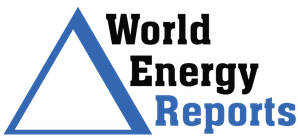Repsol to Drill First Phase of Canary Islands Solo
Repsol, part of a consortium planning to explore for oil off the Canary Islands, will carry out the first phase of the project on its own, a source with knowledge of the matter said on Wednesday.
The Spanish oil company and its partners Woodside Energy Ltd. of Australia and RWE AG's oil and gas arm DEA got the green light to drill two sites off the coast of the Canary Islands earlier this month, despite fierce local opposition.
Repsol has estimated the cost of undertaking the first phase on its own at about $140 million.
"There's an option in the partners' contract (for Repsol to finance the deal alone) and carrying it out would facilitate certain technical and calendar aspects," the source told Reuters.
If Repsol finances the drilling of the first well on its own, it would also be able to keep all of the potential profits from that site, the source said.
Repsol said on Wednesday it had not yet taken any decision on whether to develop the first well, called Sandia (watermelon in English) on its own. Drilling of the well, which geologists estimate has a 12-20 percent chance of success, is due to begin this year.
The $7 billion Canary Islands project has run up against court challenges and opposition from environmentalists and the local government over the impact of any possible oil spill on the islands' biodiversity and tourism.
Repsol is flush with cash after settling a long dispute with Argentina and is keen to develop what may be the country's biggest oil field. If oil is discovered, Repsol estimates it could cover 10 percent of hydrocarbon demand in Spain, which is heavily reliant on foreign fossil fuels.
Woodside, with 30 percent of the consortium, is looking for growth opportunities in liquefied natural gas while Germany's RWE, which has 20 percent, is in the process of selling DEA to cut a heavy debt burden.
(Reporting by Jose Elias Rodriguez; Writing by Tracy Rucinski; Editing by Carlos Ruano and Jane Merriman)

